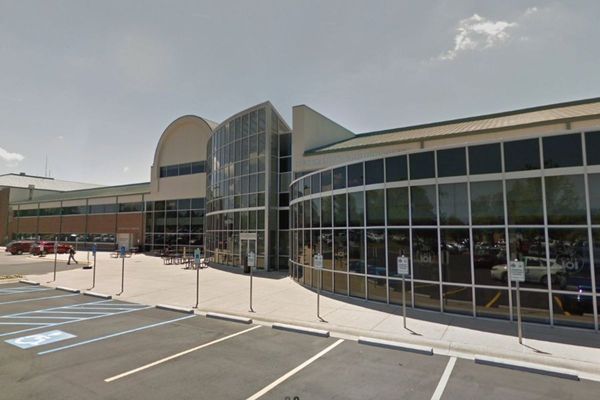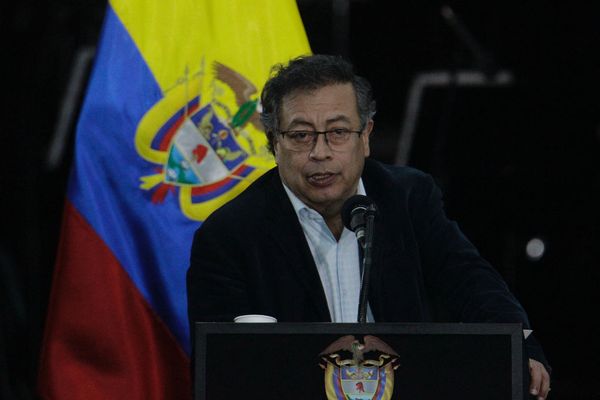
Donald Trump has overseen the signing of a ceasefire agreement between Thailand and Cambodia on the first day of an Asia tour where he will seal new trade agreements and hold a crucial meeting with Xi Jinping.
The US president arrived in Malaysia on Sunday before the Asean summit in the capital, Kuala Lumpur. At a ceasefire ceremony in front of a sign that read “Delivering Peace”, the Thai prime minister, Anutin Charnvirakul, and his Cambodian counterpart, Hun Manet, signed an expanded ceasefire deal related to a deadly five-day conflict in July.
Trump helped broker the end of the two nations’ worst border conflict in recent history, telling the leaders they risked putting their respective trade talks with the US on hold if they didn’t end hostilities.
“The United States will have robust commerce and cooperation, transactions, lots of them, with both nations, as long as they live in peace,” Trump said on Sunday.
Trump has touted himself as a global peacemaker during his second term and his decision to weigh in behind the Malaysian premier Anwar Ibrahim’s mediation efforts prompted Manet to nominate him for the Nobel prize, lauding his “extraordinary statesmanship”. On Sunday, Trump told reporters he also intended to solve the current Afghanistan-Pakistan conflict “very quickly”.
In the new deal signed by Thailand and Cambodia, both sides agree to remove heavy weapons from the border area, cooperate on removing landmines, and for Thailand to release 18 detained Cambodian soldiers. The two sides blame each other for the short conflict, in which at least 48 people were killed and about 300,000 displaced.
Manet said: “This declaration, if fully implemented, will provide the building blocks for a lasting peace, but more importantly, it will begin the process of mending our ties.”
Anutin said: “This declaration reflects our will to resolve differences peacefully in full respect of sovereignty and territorial integrity.”
Trump had a busy run of trade negotiations on Sunday. After a meeting with the Brazilian president, Luiz Inácio Lula da Silva, Trump said: “we should be able to make some pretty good deals for both countries.” The US and Vietnam also agreed to a framework for a trade agreement that the White House said would limit reciprocal tariffs to between zero and 20%.
He also signed a trade agreement with Malaysia that would ensure no restrictions on US access to critical minerals, in return for a formalised 19% tariff on Malaysian goods. Trump had earlier said he also expected a similar deal with Thailand.
Trump said he was confident of hammering out a deal with the Chinese president before an expected meeting on Thursday, as top trade officials from both sides met for a second day in Kuala Lumpur and agreed on a framework for a trade agreement.
Earlier this month China announced a shock ban on global exports of rare earth minerals that could have dual use for foreign military or some semiconductor sectors. China controls the vast majority of mining and production of the critical minerals, and the announcement sparked panic in global markets. The US in particular is racing to diversify its supply chains, signing a recent deal with Australia to help it kickstart its own domestic industry.
Trump’s arrival at the annual Asean summit is the first stop on an Asian tour that also includes Japan and South Korea, where he is expected to meet Xi. The US and China are in the midst of a trade war which has seen damaging moves and countermoves including escalating tariffs and a Chinese pause on US soya bean purchases.
The meeting with Xi is expected to cover much more than trade, with the US leader saying he expects to bring up the Hong Kong dissident Jimmy Lai – who is in jail and awaiting a verdict on national security charges related to his involvement in the pro-democracy movement – and the issue of Taiwan.
The Chinese Communist party is preparing to annex Taiwan as a province, claiming it is currently run by “separatists”. Taiwan’s government is democratically elected. The governing party, opposition, and the vast majority of Taiwan’s population reject the prospect of CCP rule.
The US is Taiwan’s most important supporter in its resistance to a Chinese takeover, despite Washington not formally recognising it as a country and instead having diplomatic ties with Beijing.
Trump’s inconsistent and occasionally dismissive language over Taiwan has raised some concerns among observers and officials about his stance on continuing US support, most of which takes the form of weapons sales and supply, obliged under US law.
On Saturday, the US secretary of state, Marco Rubio, dismissed these concerns.
“If what people are worried about is we’re going to get some trade deal or we’re going to get favourable treatment on trade in exchange for walking away from Taiwan – no one is contemplating that,” Rubio said.
Rubio’s remarks followed recent comments by Trump that Xi “doesn’t want to do that”, referring to invasion. However, he has since walked that back, saying: “I hope they won’t, we’ll have to see.”
With Reuters and the Associated Press







